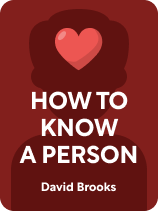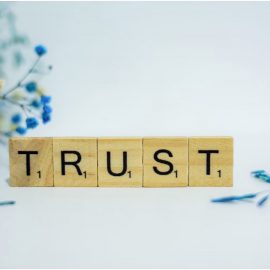

This article is an excerpt from the Shortform book guide to "How to Know a Person" by David Brooks. Shortform has the world's best summaries and analyses of books you should be reading.
Like this article? Sign up for a free trial here.
Do you know how to ask good questions? What kind of questions should you ask people in everyday conversations?
Conversations will hardly get anywhere without inquiries. The first step to engaging more deeply in someone’s story is to learn to ask good questions, specifically, insightful ones.
Continue reading to learn about the art of asking questions in deep conversations.
Practice Asking People the Right Questions
When you want to discover how someone sees the story of their life, you can’t ask perfunctory questions and expect to get deeply insightful answers in return. Brooks uses a particular example to show how to ask good questions: instead of asking someone what they think about a particular topic, you could ask how they came to think the way they do about that issue.
(Shortform note: Brooks’s advice to ask someone how they formed an opinion can help both of you better understand why they think what they think. Research suggests that it’s challenging for us to change our views or consider other perspectives because our minds subconsciously process opinions we agree with as facts. This automatic bias might explain why people often remain fixed in their beliefs. By asking questions that prompt your conversation partner to reflect on the origins of their opinions, you might be able to have a more thoughtful conversation—one that leaves both of you with a better understanding of how they think.)
Brooks contends that, contrary to popular opinion, it’s often OK to ask people big questions: the kinds of questions that we ask as children but get squeamish about posing to each other as adults. He thinks it’s a good idea to ask people questions about what they believe about the world, what kind of person they know themselves to be, and what they value most in their lives. Most people want to tell their story—once you’ve established a trusting relationship with someone, Brooks thinks the chances are good that the other person would welcome a conversation about the big, philosophical questions they rarely get asked.
(Shortform note: Social scientists agree with Brooks that asking good questions can significantly enhance your conversations with others. Research shows that people who ask more questions are generally viewed more favorably and seen as more likable. This effect is especially pronounced in encounters where two people are meeting for the first time—such as speed dating, where asking good questions usually increases the likelihood of getting a date. Researchers say that asking questions demonstrates your attentiveness and genuine interest in the other person. That can lead to more meaningful connections over time.)
Brooks recommends that in addition to asking big questions about a person’s philosophy, you can also ask more concrete questions about the things they’ve experienced. For example, as a person tells you about something they’ve done, you can ask detailed questions that help them go deeper into the story and explain what the experience was like for them. Brooks notes that you should always aim to ask questions that invite genuine answers: answers that tell you something about the other person. By asking good questions, you can honor the other person’s ability to make sense of their life, experiences, and beliefs.
(Shortform note: Want to get better at asking the kind of questions that Brooks is talking about? Some researchers suggest focusing on asking good follow-up questions. These questions are particularly effective for deepening conversations and building rapport because they signal to your conversation partner that you’re listening, care about what they’re saying, and want to know more. People feel respected and heard when interacting with someone who asks lots of follow-up questions. Additionally, researchers note that the order and tone of your questions matter: A casual, informal approach often encourages more open, genuine answers.)

———End of Preview———
Like what you just read? Read the rest of the world's best book summary and analysis of David Brooks's "How to Know a Person" at Shortform.
Here's what you'll find in our full How to Know a Person summary:
- The benefits of really getting to know other people
- How to better understand people on a personal level
- Why our morality and relationships are in a crisis






